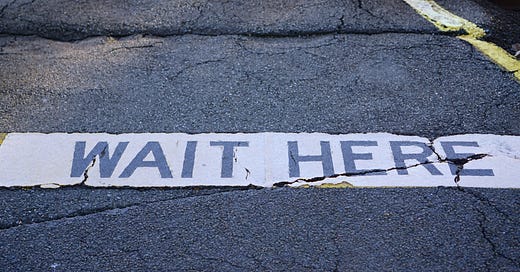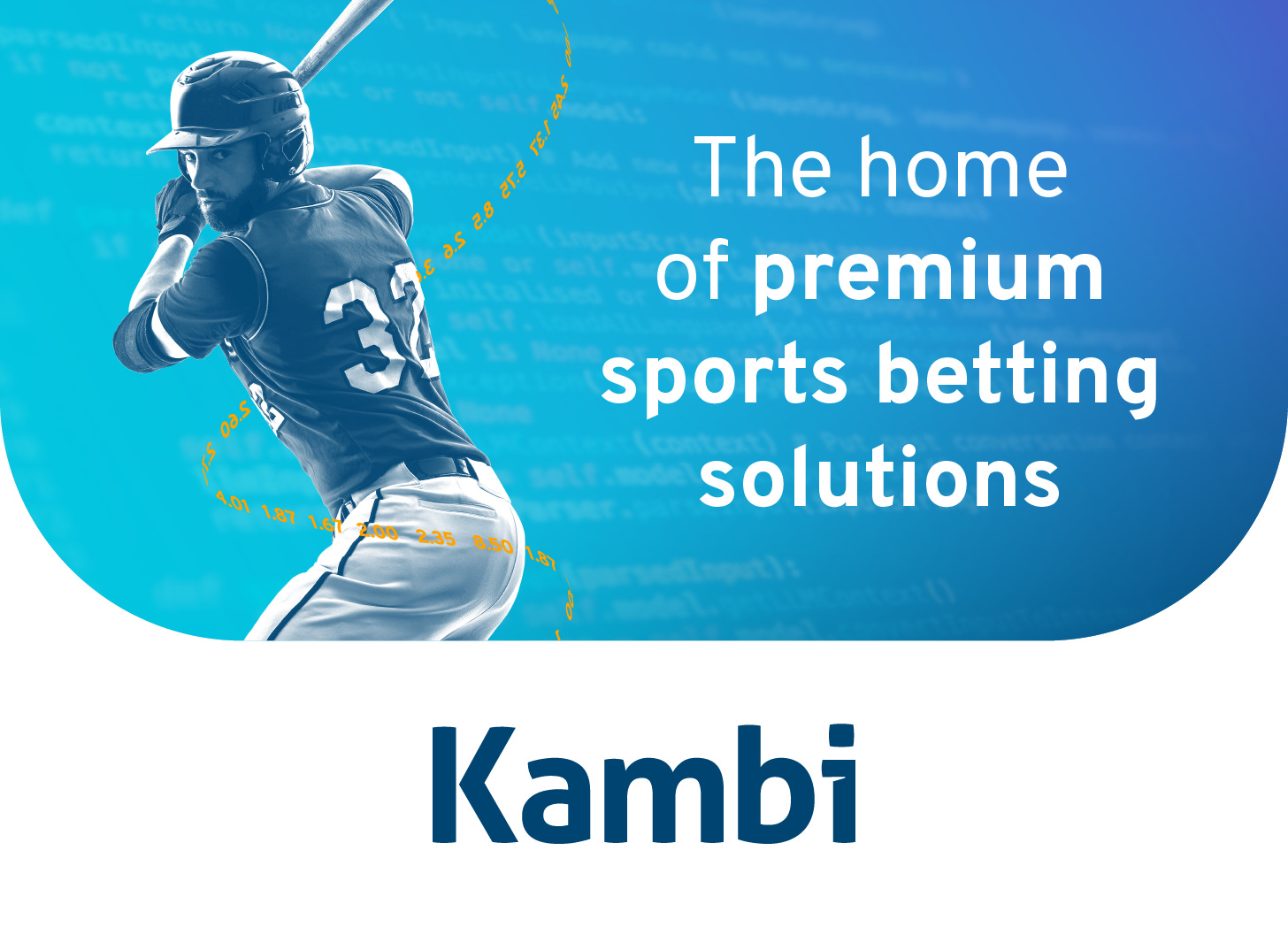Unwelcome Guests
Kalshi’s legal battles could pave the way for US prediction markets, but with others entering the fray, is Kalshi clearing a path for its own rivals?
The Bulletin Board
THE LEDE: If Kalshi wins in court, its prize will be stiff competition.
BEYOND the HEADLINE: Prediction markets are not predicting the future.
ROUNDUP: NJ online gambling tax increase details; Poker cheating; Tribes join MD-Kalshi lawsuit; NCAA votes on betting policy change.
NEWS: New Jersey Gov. open-minded about North Jersey casinos.
AROUND the WATERCOOLER: Sportsbooks’ celebrity whales.
STRAY THOUGHTS: From a certain point of view.
Sponsor’s Message: Increase Operator Margins with EDGE Boost Today!
EDGE Boost is the first dedicated bank account for bettors.
Increase Cash Access: On/Offline with $250k/day debit limits
No Integration or Costs: Compatible today with all operators via VISA debit rails
Incremental Non-Gaming Revenue: Up to 1% operator rebate on transactions
Lower Costs: Increase debit throughput to reduce costs against ACH/Wallets
Eliminate Chargebacks and Disputes
Eliminate Debit Declines
Built-in Responsible Gaming tools
To learn more, contact Matthew Cullen, Chief Strategy Officer, Matthew@edgemarkets.io
The Lede: Kalshi Isn’t the Only Prediction Market
Kalshi is the face of the US prediction market industry. Its most significant challenge is in the courts, but even if it secures a total legal victory, it faces growing competition in what is a rapidly-evolving prediction market landscape.
Polymarket + X Deal: Polymarket partnered with X to integrate real-time prediction market insights and data-driven recommendations into the X platform. The deal solidifies Polymarket’s global presence and potentially positions Polymarket as a strong competitor to Kalshi in the US — Polymarket remains barred from US users due to a 2022 CFTC settlement; however, with the changed environment around prediction markets at the CFTC, the company has signaled an interest in returning to the US.
CFTC Settlement with PredictIt: In June 2025, the CFTC settled a long-standing lawsuit with PredictIt, a New Zealand prediction market platform that had previously received a “no-action” letter from the CFTC before the regulatory body reversed course in August 2022, leading to the legal case STTP has closely monitored. The settlement strengthens PredictIt’s position as a potential competitor to Kalshi.
CFTC Approval of Railbird: New York-based Railbird Exchange received CFTC approval as a Designated Contract Market (DCM) earlier this month, enabling it to offer event contracts, directly competing with Kalshi’s event contract model. Railbird’s entry intensifies competition in the US prediction market space.
Sporttrade Files for CFTC Approval: In April, Sporttrade, a licensed sports betting exchange operating in five states, filed for CFTC approval to offer its product as a prediction market platform. If approved, Sporttrade would immediately compete with Kalshi by offering sports event contracts under federal CFTC regulation, which would present a significant challenge to Kalshi’s dominance in sports-related prediction markets.
Beyond the Headline: Prediction Markets Aren’t Polls
Prediction markets continue to make an apples-to-oranges comparison that makes virtually no sense. That comparison is that they are more accurate than polls and sources of truth:
That was from last night’s New York City mayoral primary, but as Dustin Gouker noted in a must-read entry in his Event Horizon newsletter, outlandish claims are an ongoing thing with Kalshi and other prediction markets.
So why can prediction markets claim to be so goddamn accurate? Unlike polling, they provide real-time updates. They aren’t some secret oracle truth that accurately predicts the future; they’re reactive, not prophetic.
As Gouker wrote, it was polling results that caused a shift at prediction markets:
“That was also true at both Kalshi and Polymarket, where Cuomo had been the favorite all spring. Everything changed on Monday, when an Emerson College poll dropped, showing a tight race and giving Mamdani the edge in the ranked choice primary. The poll almost instantly shifted prediction market odds in Mamdani’s favor, but over the next day and a half, the favorite flipped back and forth several times.”
And even on election day, the prediction markets weren’t showing a Mamdani victory:
“By the time polls closed in NYC, Cuomo was a small favorite at both Kalshi and Polymarket, trading at a 57% chance to win.”
As Geoff Zochodne posted on X, despite their claims to the contrary, prediction markets actually missed on this one:
What Kalshi et al. are claiming would be like Ipsos running a poll at 2 AM on election night. I wouldn’t be surprised if they nailed that one.
As Alex Kane noted in the past:
Prediction markets are what they are (which is fine): a snapshot of the current zeitgeist on any topic. If they were accurate sources of truth, they wouldn’t have missed Zohran Mamdani, the new pope, or the outcome of countless sports events. It’s easy to predict the future in real-time.
Roundup: NJ Tax Increase; Poker Cheating; Tribes Join MD-Kalshi Lawsuit; NCAA Betting Policy Change
New Jersey will raise its online gambling tax rate to 19.75% [Press of Atlantic City]: As reported yesterday (when the tax rate was still unknown), the New Jersey legislature and Gov. Phil Murphy have reached a deal on a mobile sports betting and online casino tax hike. Today, we know the new tax rate, which will be 19.75%. The current online casino tax rate is 15%, and online sports betting is taxed at 13%. There is also an additional 2.5% IAT tax on iCasino and 1.25% on online sports betting, which will bring the new rates to 22.25% and 21% respectively.
RFID cheating uncovered at Houston cardroom [Poker News]: “A high-stakes poker night at JokerStars Poker Room in Houston was marred by scandal this past Sunday, as three players, including a former club employee, were caught executing a sophisticated cheating operation using RFID technology and a concealed card reader.” STTP has previously covered the legality of these membership cardrooms.
Tribes side with Maryland in Kalshi lawsuit [InGame]: A coalition of 27 federally recognized tribes and seven tribal associations filed an amicus brief in the US District Court for Maryland, opposing Kalshi’s motion for a preliminary injunction against the Maryland Lottery. The tribes argue that Kalshi’s sports event contracts are illegal sports wagers, violating the Indian Gaming Regulatory Act and threatening tribal sovereignty and gaming revenue. This follows a similar brief filed by over 60 tribal entities in Kalshi’s New Jersey case.
NCAA closer to allowing athletes and staff to wager on pro sports [USA Today]: As previously reported in STTP, the NCAA is considering changes to its rules that would allow betting on professional sports. That effort took a big step forward this week when the NCAA Division I Council voted in favor of the proposal. The effort still requires approval from Division II and III councils and formal adoption in October. This change would lift the current ban on such betting, though wagering on college sports would remain prohibited.
SPONSOR’S MESSAGE - Underdog: the most innovative company in sports gaming.
At Underdog we use our own tech stack to create the industry’s most popular games, designing products specifically for the American sports fan.
Join us as we build the future of sports gaming.
Visit: https://underdogfantasy.com/careers
News: New Jersey Gov. Open to Casinos Outside AC
With New York (slowly) progressing towards awarding three downstate casino licenses, New Jersey “Gov. Phil Murphy says he is ‘open-minded’ about allowing casinos in northern or central New Jersey as a way to keep gambling and tourism dollars from leaving the state,” The Press of AC’s Wayne Parry reports.
In an interview with the Press of AC, Murphy said he understands the potential implications of an expanded casino footprint in New Jersey but has to balance the impact on Atlantic City with what he calls a duty to keep gambling money within the state’s borders.
“I have to color myself open-minded, but with a very clear caveat that I need to understand how all of this impacts Atlantic City,” Murphy said.
A new effort, SCR 130, to get North Jersey casinos on the ballot has been launched by State Senators Paul Sarlo and Vin Gopal. The effort would authorize casino gambling at Meadowlands Racetrack and Monmouth Park Racetrack. Previous efforts to expand casino gambling beyond Atlantic City have lacked support (most notably a 2016 effort that garnered only 20% support from voters).
Still, the threat has never been more apparent. As I previously noted in the newsletter:
One of the most vocal supporters of the effort, Jeffrey Gural, who owns Meadowlands Racetrack, believes the failed effort in 2016 stemmed from a lack of specificity. Gural told NorthJersey.com that the new site-specific proposal will be “more palatable to voters, especially after a new governor is elected.”
The language of the new referendum would read:
“Do you approve amending the New Jersey Constitution to allow the Legislature to pass laws permitting casino games at the Meadowlands Racetrack and Monmouth Park Racetrack?”
The bill allocates revenue from the new casinos as follows [bold mine]:
Property tax reduction - 45%
Special education aid - 20%
State pensions -10%
Cost-of-living adjustments for retired State employees - 10%
Atlantic City tourism - 10%
Funding for the running and harness horse racing industry - 5%
Gural expects the tax rate imposed on the new casinos to far exceed what Atlantic City casinos currently pay.
SPONSOR’S MESSAGE - Kambi is the industry’s leading independent provider of premium sports betting technology and services. Trusted by dozens of operators worldwide, each benefitting from the power of Kambi’s global network, Kambi has a proven track record of giving partners the decisive competitive edge required to grow and outperform the market.
As the home of premium sports betting solutions, Kambi offers an expansive product portfolio that caters to the evolving needs of operators and players alike. At its core is Kambi's flagship Turnkey Sportsbook, renowned for its scalability, flexibility, and unrivaled track record of delivering world-class betting experiences globally. Complementing this are Kambi’s cutting-edge standalone products: Odds Feed+, Managed Trading, Sportsbook Platform, Bet Builder, Esports, and Front End.
Around the Watercooler
Social media conversations, rumors, and gossip.
Last week, I noted Jay-Z’s betting, and this week it’s Drake, who appears to be betting significant amounts of money on Stake.com (Drake reportedly has a $100 million per-year deal with the cryptocurrency online gambling company).
On his Instagram, Drake posted, “gotta share the other side of gambling,” followed by a screenshot showing he has wagered nearly $125 million in the last month, resulting in $8.2 million in losses.
InGame did a write-up of Drake’s betting, although there is a distinct possibility that Drake’s deal with Stake could be paid in part in bets, which would make his betting behavior akin to betting with house money.
Of interest, the new California sweepstakes prohibition bill could put celebrity endorsers at risk:
Stray Thoughts
It’s interesting to me how groups phrase similar events based on how they will impact them. Take the current sweepstakes effort in California, which the SPGA is framing as a late-session maneuver that is a backroom ban that lacks “public debate, expert input, or economic analysis.”
Or the sports betting tax situation in Illinois, which ‘came out of nowhere.’
I wonder what the public statements would be if a late-session bill sought to regulate sweepstakes or if, instead of a tax increase in Illinois, it were a gut-and-amend to legalize sports betting in Georgia?
Late session legislation and sneaking things into budget bills is the nature of politics. The point being, one side will always be pleased with these efforts, and the other side will always be dissatisfied and cry foul.











